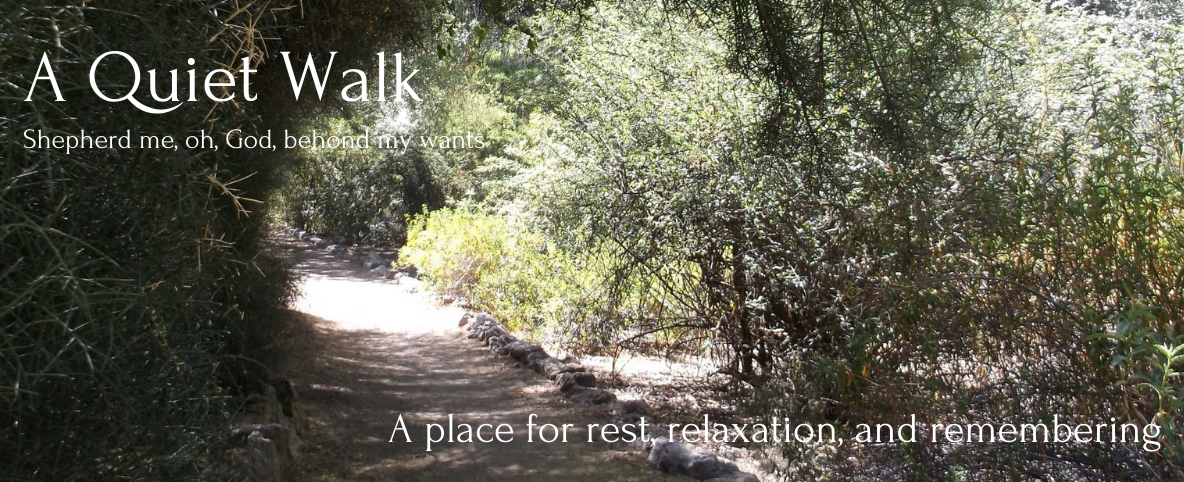
April 23, 2015 (Ruth Jewell)
While I was traveling in April I carried a small book with me by Mark E. Thibodeaux, SJ titled Reimagining the Ignatian Examen.[1] On our sea days when I would sit on the deck of our cruise ship and watch the ocean go by I various meditations for my daily prayer time.
Thibodeaux’s book takes the traditional Examen and includeds a specific focus to use within the prayer practice. There are 34 different themes and I discovered a number of them to be very helpful for me as I sat in stillness. Over the next several months I will occasionally offer one of the meditations from the book for our Prayerful Tuesday. As today follows Memorial Day when we honor those who have died in service I would like to offer the meditation for Gratitude.
First let me offer a few hints from the book to get you started.
- Keep it short. Keeping your Examen under 15 minutes will keep your prayer in the moment and a reminder that this is a check-in with God that reorients your toward the Divine.
- Skip to the good parts and don’t get hung up on sin. You only want to dwell on the steps and you want to get to the point rather than linger for an extended period of time. Nor do you want to dwell on all the things that have gone bad or at least you think have gone bad. God has the facts you don’t have to bore him with a lot of details.
- Sometimes, break all the rules. If you feel like it, skip over parts of the Examen you don’t feel you need to do or change them around.
- Experiment with different ways of journaling. Tweet-sized, or drawing, or video yourself dancing. Do whatever moves you in prayer.
- Keep it prayerful. Keep the prayer God centered and don’t let your meditation drift into your shopping list or your latest aggravation. Extra hints: A. ask God to take the lead, ask God to do your Examen for the day; B. Talk to God instead of yourself; C. listen for God’s voice, sit in silence for a moment and let God enter you
Here is how I began and closed my ritual, you may choose something totally different that fits you and the place you’re in spiritually right now:
- I stand still for a moment and let my mind quiet.
- I repeat Micah 6:8 as I sit down
- I place my hands in my lap, palms up, in a gesture of being open to God’s love and grace
- I slow my breathing and clear my mind, sitting very still for a moment
- I welcome God in to my heart and spirit
- Then I begin my Examen
Closure:
- I take several very deep breaths as a way to bring myself back to moment
- I place my hand on heart and repeat Matthew 28:20b
- I journal for a short while before rising from my chair.
Note: I change scriptures from time to time, substituting poetry and prayers. Remember nothing is written in concrete.
Examen theme of GRATITUDE
- Begin in your usual way
- Ask God to reveal special blessing in your life this day. As yesterday was Memorial Day, ask God to also reveal the special blessing you’ve received from someone you loved who has passed on.
- Ask yourself ‘what am I grateful for today? “Who am I grateful for?’ Name the person(s) gift and offer the following “Lord, I am so grateful for your gift to me of _____.” Repeat this as many times as you need to
- Relish each gift in turn, letting them warm your heart. Using prayerful imagination see, feel, hear, touch, sense the gift again
- Let the gifts you have received dance in your memory offering your gratitude to God for each one. Offer the following; “Thank you Lord for (neighbor, family, laughter, shared meal, etc.)
- End in your usual way.
I truly enjoyed Thibodeaux’s focuses on my trip, they helped me retain a pilgrim attitude to the whole trip and I hope you find today’s focus helpful as much as I did.
Peace and Blessing on your journey
Ruth Jewell, ©May 26, 2015
[1] Thibodeaux SJ, Mark E; Reimagining the Ignatian Examen, Loyola Press, Chicago, IL, 2015



















